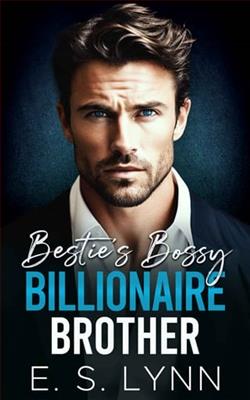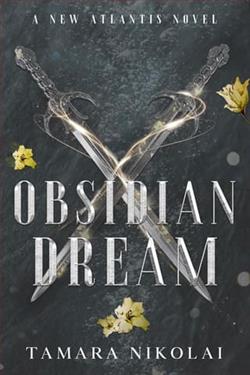Page 77 of The Last Stars in the Sky
Daniel thinks of the man rotting in his wheelchair. The two-year-old standing in the middle of the highway, his dirty face streaked with tears, entirely alone, while Daniel drove by, looking the other way. The empty, abandoned farmhouse in Utica where he once felt at peace, the American flag on its porch post in tatters, a small square of grubby blue blanket, with its worn rabbit’s head, the silky ears, lying on the floor, spattered with blood.
“I’ll try,” he tells Alex, but already he knows he won’t. “You haven’t had any…trouble?” he asks after a moment, his voice a parody of casual.
Alex is quiet for a moment. “Not recently,” she says at last. “We haven’t left the property in months. We’ve done our best to fly under the radar, to act invisible, but there have been dangers. Gangs.” She pauses, swallows, and then falls silent, and he wonders what she’s choosing not to tell him.
“I saw the tree.”
She nods. “It’s not much, but we hope it might discourage…people…from exploring. Like you said, hiding is a better strategy than building some big gates or something like that, which would make people wonder what we’re trying to protect, and frankly we haven’t got the manpower or the weaponry to handle some kind of mass attack.”
She speaks so matter-of-factly that for the first time Daniel wonders what she’s seen. How arrogant of him, he realizes, to think he has suffered more. And yet he can’t shake the feeling that he has, that hemusthave.
She reaches over and touches his hand again. “It’s okay now,” she says softly, like she’s comforting a child, or maybe taming a wild animal. “We’re all together again. It’s going to be okay.”
Daniel stares out at the lake and does not respond.
TWENTY-FIVE
A week after Daniel and Sam have come home, I rise early, boiling water for my cup of morning coffee, enjoying the few moments of stillness. It was Justine who showed us that coffee—or really, a coffee-like drink—could be made from roasting the tiny seeds of sticky weed, known as cleavers; it takes hours to collect enough to roast for a single cup, but it is worth it. The nutty flavor is almost reminiscent of the taste of coffee, a ghostly echo of my Starbucks Americano.
I’ve enjoyed my quiet mornings, before everyone starts to stir and the day’s round of chores begins. Our household has become so full, and our days so busy. With the arrival of Justine and Phoebe, the need to find ways to get more food became increasingly urgent, as our stores were dwindling at an even faster rate. Fortunately, we managed to trap several rabbits and another beaver, along with a passel of fish. Kevin was right; beaver does taste like gamey beef, and you do have to stew it for a long time. I skinned and cleaned it by myself, with determination if not quite precision.
In March, we made maple syrup, arms aching from tapping the trees with a hand drill, trudging through the snow, hanging buckets with hope. I recalled my parents, dogged withdetermination, doing the same thing when I was a child; I never really understood just how much grueling work it was until I was emptying pails and carrying buckets myself—forty gallons of sap for one measly gallon of syrup, but how we savored the sweetness.
It took us a few tries to get the hang of the thing; the first batch of syrup was appallingly bad—hours and hours of wasted work, tapping trees and boiling down the sap to a rich, amber liquid—but the second was passable, and everyone loved having it on their porridge, since the brown sugar had long ago run out. The morning after Daniel came back, I brought my mother a bowl of porridge with a golden dollop of syrup on top. It had been hard to discern her lucidity; at times she seemed confused but accepting, other times as sharp as a tack, and at yet other times completely out of it, asking where she was or, painfully, where my father was.
When she tasted the porridge with the syrup, though, her whole face brightened and she asked me with a sort of interested eagerness, “Did I make this?”
I took it as the highest compliment.
Having her here has been like a gift, a miracle, and one I never, ever expected to happen, for Daniel to make happen. I’m still amazed—and more than a little apprehensive—as to how he managed it, somehow getting all the way to Worcester from Clarkson…over a hundred miles, that much closer to the nuclear blasts. And yet I’m so grateful because my mother belongs here, more than I ever did. The cottage is part of the fabric of her soul; it's knit into her very being.
When the sun comes out and the deck is warm in the afternoons, I help her out there; we sit together and simply gaze at the lake. We don’t speak much, but we don’t need to. The memories are there, for the taking; we can simply sit and savor them, look at all the blueness andbe, together, at last.
But this morning, as I stoke the fire in the wood stove to make my coffee, that sense of dreamy peace eludes me. Daniel has been home for a week, and he has barely spoken to me in all that time. He’s barely spoken to anyone, and when he does speak, it’s as if he has to find the words from a well deep inside him, draw them up slowly, then lay them down, each one a burden.
I was so excited to show him all our innovation and industry—the greenhouse that Ruby is the proud mistress of, the smokehouse that Justine and Kyle built, the bottles of maple syrup and the fields plowed for potatoes and oats, the first seedlings pushing up through the earth; the fish we’ve caught and smoked, the herbs we’ve collected and dried, the plans we have for preserving apples and raspberries and plums, and the more distant plans we’re still dreaming of—solar panels, keeping bees, a rainwater harvesting and purification system. I’ve studied that book on self-sufficiency until I can practically recite every word. But Daniel hasn’t seemed interested in any of it.
He’s observed and he’s helped—silently chopping and stacking wood with Kyle, checking the rabbit and beaver traps, weeding the fields, collecting water from the lake for the barrel in the kitchen. But it’s without any enthusiasm or interest, without even a word, and when I think of howhewas the one who first said we could make a life here, back when I scorned his idea of us pretending to be pioneers…well, the fact that we’re doing it now and he doesn’t seem to care makes me want to cry. Worse, it makes me afraid.
What happened to him out there? Do I even want to know?
“Up early again?”
I turn to see Kerry standing by the ladder to the loft; I didn’t even hear her climb down. After Justine and Phoebe joined us, Kerry moved up to sleep with Mattie and Ruby and Justine tookthe guest bedroom; Kyle stayed in the box room, which he now shares with Sam, who sleeps on a mattress on the floor. It’s crowded, and we can’t really fit anyone else, but it’s working so far.
“Yes, it’s the best part of the day,” I reply. I love watching the mist move over the lake, the sky lighten from indigo to pearly pink, before sunlight floods the windows, lights up the whole house.
Kerry walks into the kitchen, and I follow her, not wanting to wake anyone up with our conversation.
“I can’t believe it, but this stuff is growing on me,” she remarks, as she pours herself a cup of cleavers coffee. “Too bad it takes a zillion seeds to make a cup.”
“Good, though, that sticky weed is everywhere around here.”
“Always the optimist.” She smiles at me, and I smile back; over the last few months our relationship has become a deep and abiding bond, forged in suffering and danger, honed by hard work and cooperation. I’m more grateful for her friendship than I ever could have imagined. She takes a sip of her coffee. “It will get better,” she says quietly.
I don’t pretend to misunderstand; we’ve come too far for that kind of useless prevarication. “I didn’t even think about what it would be like,” I reply, “when he came back,ifhe came back. I just wanted him home.”
She nods and takes another sip. “I know.”















